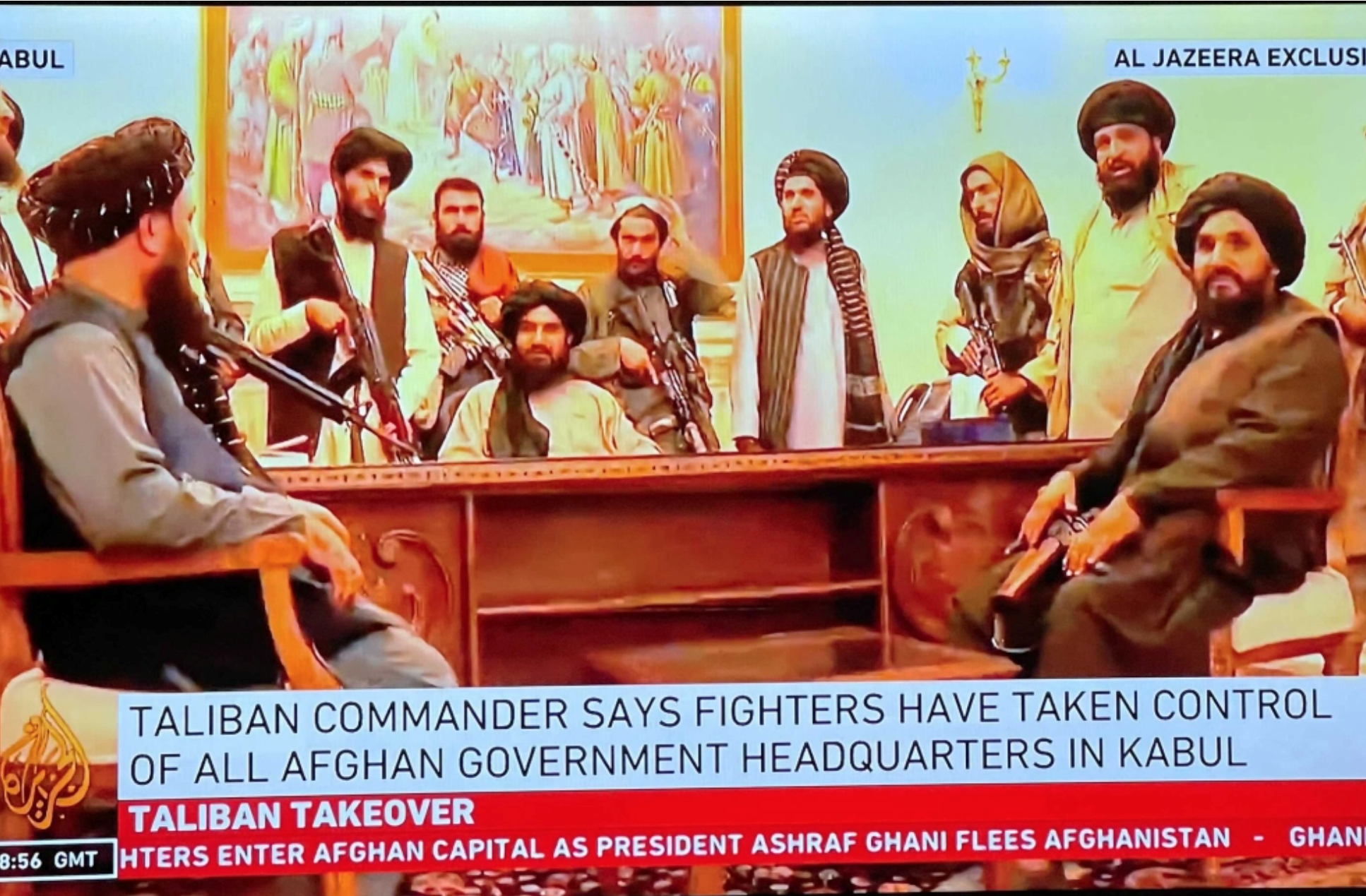Following the collapse of large Afghan cities to the Taliban, Bismillah Khan Mohammadi, Afghanistan’s defence minister, announced the country’s readiness to stand strong against Taliban attacks on Kabul. Soon after the announcement was made, however, President Ashraf Ghani unexpectedly fled the country alongside other key leaders.
What followed is now well known: the president escaped, the government collapsed, and the Taliban started moving into Kabul from various directions, taking over government offices, security districts, and ultimately capturing the presidential palace. The Taliban claimed total control of the country, substituting Afghanistan’s national flag with theirs.
Life For Women
Taliban spokesperson Zabhiullah Mujahid most recently admitted that women workers are expected to stay at home until further notice. Mujahid, in his second press conference on August 24, said that their forces are not well trained on how to deal with women. This is the reason the Taliban spokesperson urges women to stay home.
As Mujahid said in his first press conference: “Women rights will be given as per Sharia Law.”
This represents a strict prohibition from walking outside without a male chaperone, no presence in the communities, no active role in economic, social, and political activities, among other restrictions. Experience from previous Taliban rule suggests bypassing any of the mentioned laws automatically sentences women to violent punishment.
This situation, for a woman who’s grown up in a 20-year moderate democracy, can be a nightmare, or, as Anisa Shaheed, a television reporter describes it in a Tweet written in Persian: a “situation of hopelessness and carelessness, while we receive dozens of reports that they are dragged out of their homes and attacked, what to do? where to broadcast? our hands are tied.”
Following the collapse of the Taliban at the hands of the Northern Alliance backed by international forces in 2001, Afghans experienced two decades of moderate peace and democracy. Education was finally possible for women after five years of Taliban rule, and women participation was made possible in all aspects of society. This resulted in considerable presence of women activists in politics, media and the private sector. Now, as the situation is moving backwards, it can be expected that women will be forced out of their communities.
What Remains of the Doha Talks?
After almost a year in peace talks — known as the “Doha” negotiations — the Trump administration finally came to an agreement with the Taliban that the U.S. would pull out if the Taliban assured free passage to U.S. forces returning home. The agreement was enforced immediately after the problematic 2020 U.S. presidential election and Joe Biden taking the office in Washington DC.
In his very first speech, U.S. President Biden announced an immediate pull out of forces from Afghanistan by September 11, 2021, marking an end to the so-called “endless war.” This decision had severe consequences on the status quo in Kabul.
Given that the Afghan National Army (ANA) almost entirely depended on U.S. financial, operational and logistical support, in the absence of such support, the failure and dismantling of the ANA was to be expected. It also had a negative impact on the morale of ANA which resulted in the collapse of districts, cities and whole provinces to the Taliban.
On the ground, the Taliban saw the situation as an opportunity to advance towards major cities, which they did. A more detailed day-to-day account of incidents is not the focus of this commentary, but it is available at https://tolonews.com/.
While the situation was deteriorating in the country, an Afghan governmental delegation was on visit to Doha to continue Peace Talks with the Taliban.
Yet, as the Taliban’s political office spokesperson Mohammad Naem said in an interview: “While we have total control in the country, there is no need to continue peace talks.”
This is clearly an indication of a totalitarian regime that willfully ignores the existence of other political parties and activists in order to concentrate power for itself.
The Afghanistan National Flag
As the Taliban entered large cities, one of the first changes was substituting the Afghan national flag with the Taliban one. Reports of journalists being mistreated by the Taliban for covering peaceful protests calling for the reinstatement of the national flag have been broadcast in some major cities.
As concerns over freedom and human rights continue to grow each day, a similar situation as what was happening during the Taliban time between 1996 – 2001 is to be expected. There are many factors like human rights, in particular, women and minorities’ rights, freedom of speech, security, which the Taliban need to make progress on before the international community might probably consider working with them.
Otherwise, I fear that Afghanistan will once again fade away from the international community’s attention.
Hamid Safi is an Afghan journalist who's worked as a reporter for TV, radio and print media, as a public communication expert with the government of Afghanistan, UNICEF, IFAD, and civil society organizations in Afghanistan since 2001. He completed his graduate studies in political science at the Nagoya University, Graduate School of International Cooperation Studies, with a focus on the role of media in peacebuilding in Afghanistan. He has close connections with Afghan reporters and is interested in contributing to the peacebuilding process in Afghanistan.





